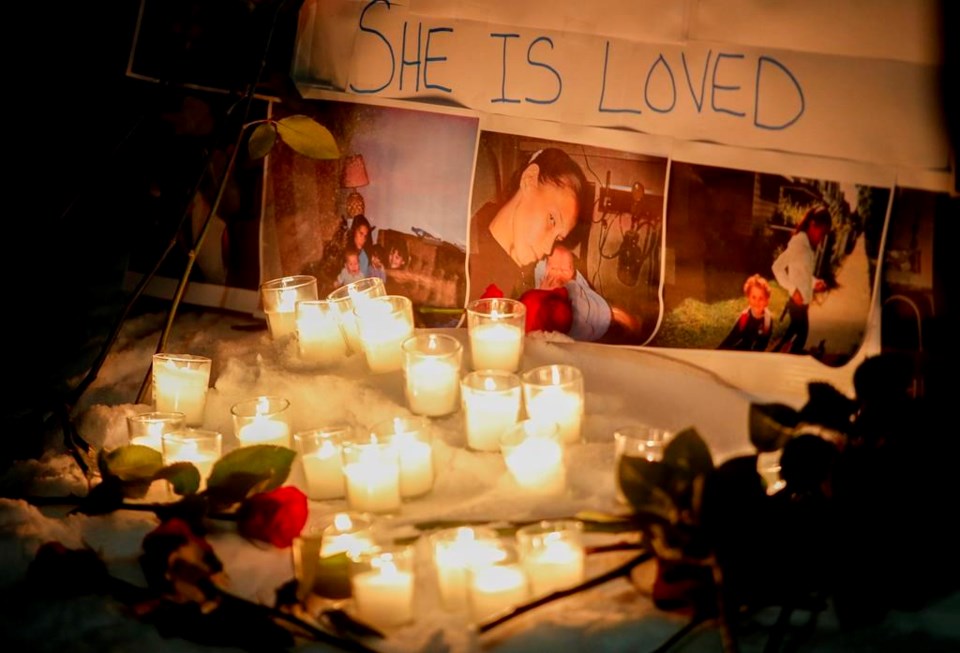WINNIPEG — An Indigenous organization is spearheading efforts to develop a system that could make it easier to flag when a person experiencing homelessness is missing.
It comes after the slayings of four women last year in Winnipeg by an alleged serial killer.
Ma Mawi Wi Chi Itata Centre, a community service provider in the city, is leading the conversation with other agencies, including homeless shelters, on how best to protect vulnerable individuals while also respecting their privacy.
One possibility is a database of shelter and agency clients that can be shared between groups. Another, already underway at one shelter, is training staff to look out for predatory behaviour.
"We have nothing in terms of the ability to monitor their well-being outside those places of refuge," said Sandra DeLaronde, an advocate for missing and murdered Indigenous women and girls, who is working with Ma Mawi Wi Chi Itata on next steps.
Other than offering a person temporary shelter, she said, agencies are limited in what they can do to address safety concerns.
Jeremy Skibicki is charged with first-degree murder in the deaths of Morgan Harris, Marcedes Myran, Rebecca Contois and an unidentified woman who Indigenous leaders have called Mashkode Bizhiki'ikwe, or Buffalo Woman.
Police believe the women were killed over a two-month period last spring.
The partial remains of Contois were discovered in a garbage bin in May 2022 and at a city-run landfill the following month. The bodies of the three others have not been found.
Police have not said how Skibicki is alleged to have known the women.
Family members have said the three identified women were vulnerable, and experienced periods of homelessness and addictions.
Little is known about the unidentified victim. Police believe she is an Indigenous woman in her mid-20s and was killed on or about March 15.
Police haven't released any updates on their investigation into her identity.
DeLaronde said Indigenous women often move to large, urban areas seeking safety from what they are experiencing in their homes or home communities. And they don't want to be identified.
The question then becomes how can agencies support them, she said.
DeLarond said she would like to see shelters and agencies have conversations with their clients about what staff can do if they don't hear from them.
"Develop a plan with them at the outset that allows for some kind of capacity for outreach and the safety check," said DeLaronde.
Police do not limit who can report someone missing, but they are limited in what they can do if an adult chooses to cut off contact from family, friends or agencies.
"Whoever reports it will have to articulate reasons they believe this person is truly missing or their safety is in jeopardy," said Winnipeg policeConst. Dani McKinnon. "The missing persons unit considers people's typical patterns as part of the investigation."
There is a record when people stay overnight at shelters, but there is little else in the way of formal documentation when individuals access drop-in centres or if they choose to remain on the streets.
Creating a database where shelters and service providers keep track of individuals is not out of the question, said DeLaronde. That way these places can check in with each other before reporting someone missing.
DeLaronde stressed any initiatives going forward would be voluntary, inclusive and in "talking with those people on the ground that are impacted."
Meanwhile, one Winnipeg shelter is training staff on how better to recognize those who target vulnerable people.
"The community has cared about these women, and certainly our staff were mourning. That's why we wanted to increase our awareness around predatory behaviour," said Tessa Blaikie Whitecloud, chief executive officer at Siloam Mission.
Blaikie Whitecloud said she had to address predatory behaviour while she was running several drop-in centres before working at Siloam. In one instance, workers banned a man from entering facilities.
Throughout training that took place last month, Blaikie Whitecloud said it became clear there is a lack of resources available for people who may be targeted because they are homeless or working in the sex trade.
"A universal basic income or a funded supportive housing environment would stop so much of this," she said.
"As a society, we're choosing to let this happen."
This report by The Canadian Press was first published Feb. 4, 2023.
Brittany Hobson, The Canadian Press




